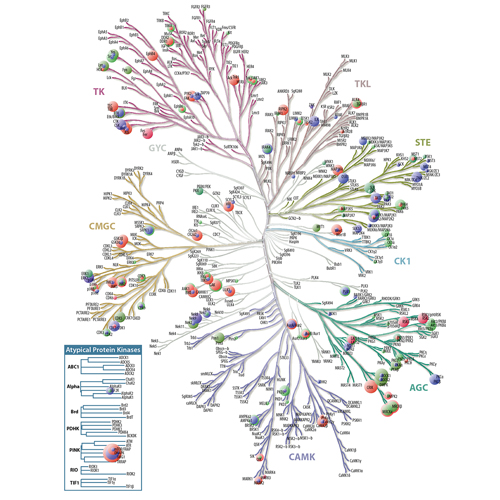Comparing Immobilized Kinase Inhibitors and Covalent ATP Probes for Proteomic Profiling of Kinase Expression and Drug Selectivity
15-Mar-2013
J. Proteome Res., 2013, DOI: 10.1021/pr301073j, 12 (4), pp 1723–1731 published on 15.03.2013
Kinases are involved in the regulation of many cellular processes and aberrant kinase signaling has been implicated in human disease. As a consequence, kinases are attractive drug targets. Assessing kinase function and drug selectivity in a more physiological context is challenging and often hampered by the generally low expression level of kinases and the extensive post-translation modification in vivo. Kinase drug selectivity screens by chemical proteomics have gained attention because they allow the profiling of hundreds of kinases against one drug at the same time. Here, we directly compared two such methods, notably, immobilized broad spectrum kinase inhibitors (kinobeads) and active site labeling using desthiobiotin-ATP and -ADP probes. Affinity purification of 100 kinases by either kinobeads or ATP/ADP probes was readily achieved using 1 mg of cellular protein. Bioinformatic analysis revealed a high degree of complementarity of the two techniques. Kinobeads covered the Tyrosine Kinase family particularly well and ATP probes enriched higher numbers of STE family kinases. A consecutive combination of both enrichment strategies therefore allowed for the coverage of a larger part of the kinome than any one technique alone. While kinobeads are very selective for kinases, the ATP/ADP probes also enriched a large number of other nucleotide binding proteins. Both methods were applied to the selectivity profiling of the small molecular Aurora kinase inhibitor tozasertib in K562 cells. Our data confirmed Aurora A, B, and BCR-ABL as the main targets of tozasertib and identified TNK1, STK2, RPS6KA1, and RPS6KA3 as submicromolar off targets.











